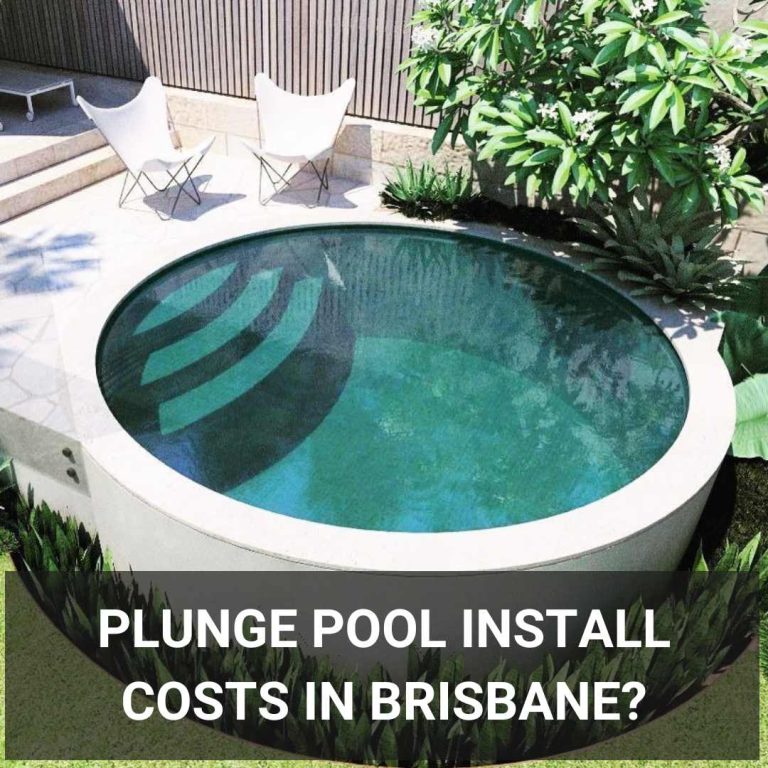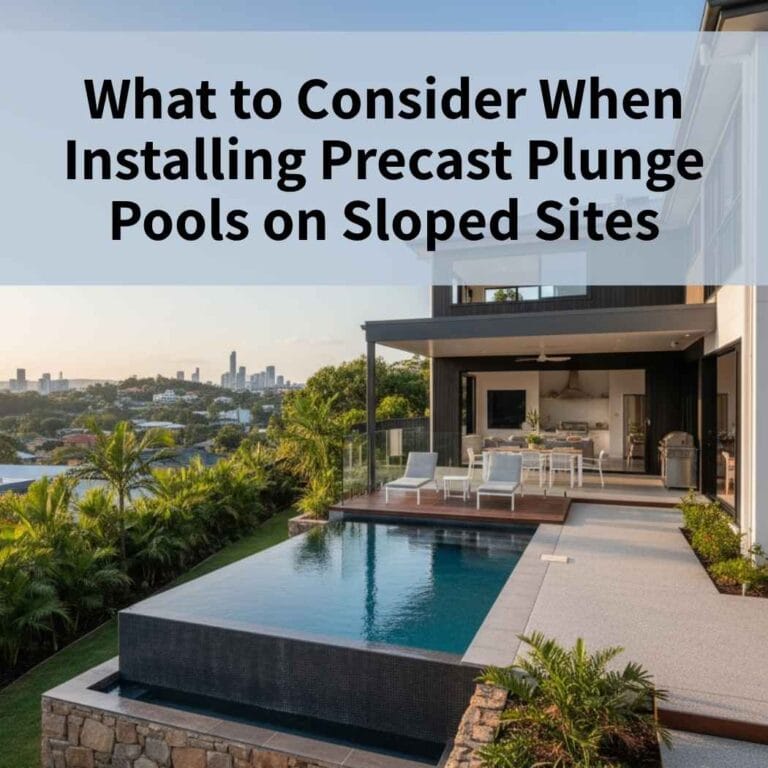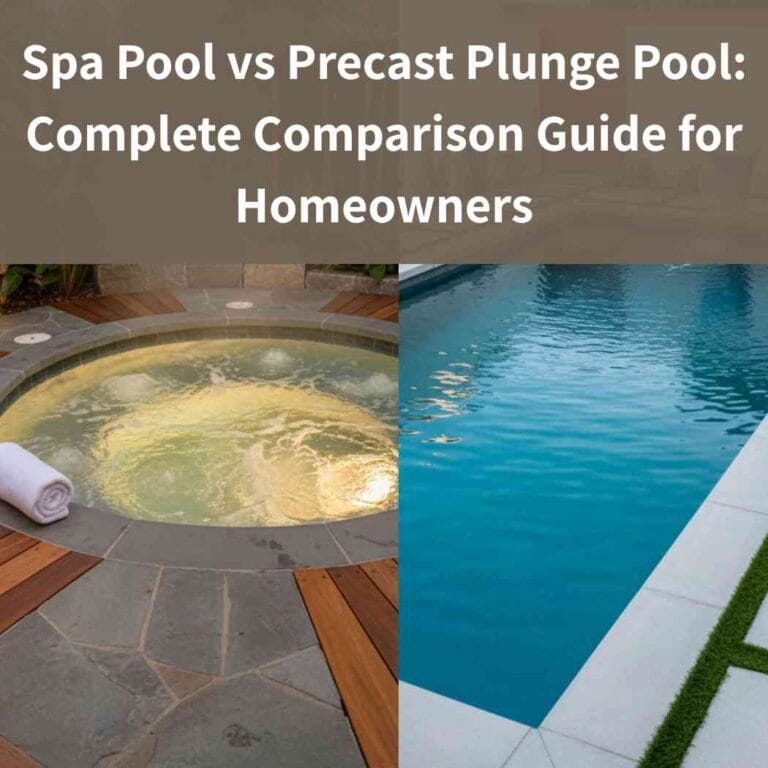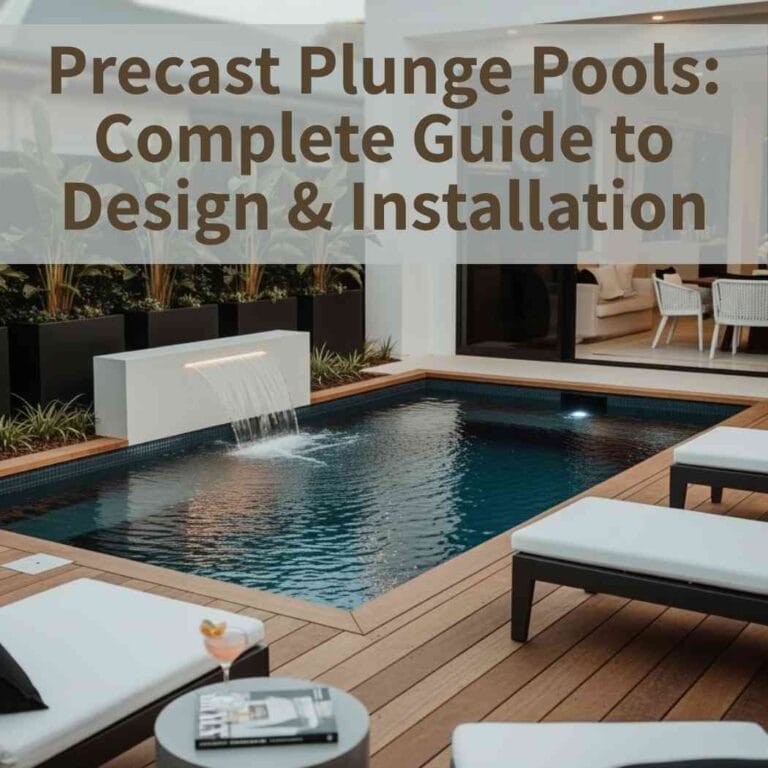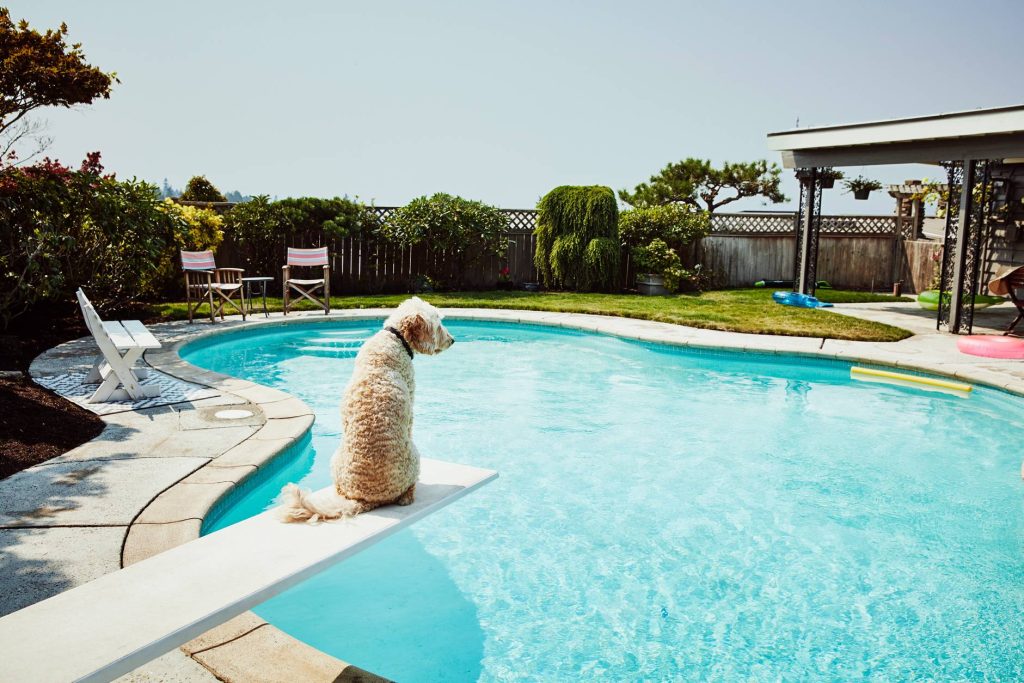
Instead of hours spent skimming the surface for leaves or vacuuming the pool, you can now do so in just a few minutes! In fact, with a plunge pool, you may not need automatic pool cleaners at all and can instead opt for cheaper manual cleaning tools.
Our team at Plunge Pools Brisbane are the experts when it comes to the construction of plunge pools in small backyards.
If you’re wondering whether or not you should get your own plunge pool this summer and how much work it’ll potentially involve, continue reading and we’ll tell you all about its maintenance.
Table of Contents
ToggleMaintenance of Plunge Pools VS. Swimming Pools
Thinking about the upkeep before choosing your pool? Here’s how plunge pools stack up against traditional swimming pools when it comes to maintenance:
- Less Water to Worry About: Plunge pools hold way less water than full-sized swimming pools, which means cleaning and balancing water chemistry takes far less time.
- Fewer Chemicals Needed: Since there’s less water, you’ll use fewer pool chemicals — making it not only easier but also more affordable to maintain good water quality.
- Simpler Filtration System: Plunge pools usually come with basic filtration setups. They’re easier to manage, less likely to break down, and perfect for low-maintenance living.
- Quick and Easy Cleaning: No need to spend hours skimming or vacuuming. Cleaning a plunge pool can be done in minutes using manual tools — no expensive robot cleaners required.
- More Consistent Water Quality: Smaller pools mean fewer fluctuations. It’s easier to keep the water clean and safe, with less effort and guesswork involved.
What are the benefits of a plunge pool?

Plunge pools come with plenty of perks — whether you’re after relaxation, a stylish outdoor feature, or something low-maintenance. Here’s why so many homeowners love them:
- Perfect for Relaxation: Want to unwind after a long day? A plunge pool is ideal for reducing stress, easing muscle pain, or simply enjoying a peaceful soak.
- Space-Saving Design: Unlike traditional swimming pools, plunge pools are compact — meaning they can fit into small backyards, courtyards, or even down the side of your house.
- Low Maintenance: Less water means less cleaning, fewer chemicals, and way less hassle. That’s a win for busy homeowners.
- Easy to Install: Plunge pools are quicker and easier to install than full-size pools, so you can start enjoying yours sooner.
- Customisable Features: Fancy some extra flair? You can add heaters, water jets, fountains, or even an infinity edge to create a resort-like vibe right at home.
- Stylish Backyard Upgrade: A plunge pool can elevate the look of your outdoor space. Whether you go for concrete, vinyl, or fibreglass, it becomes a beautiful focal point.
- Boosts Property Value: A thoughtfully designed plunge pool can make your home more appealing to future buyers and add serious value to your property.
How do I keep my plunge pool clean?
Keeping your plunge pool clean is essential. It is important to make sure that the pool remains free of algae and bacteria. Having a dirty pool can be unsafe and can even lead to an e-coli outbreak.
As plunge pools are smaller, they require less maintenance and ongoing expenses compared to full-size pools.
Plunge pools use less water and fewer chemicals, and can be cleaned with a net and handheld pool vacuum – making them a more economical choice. You also won’t need to spend money on an expensive pool service or “robot” pool cleaner.
Another easy way is to use a skimmer. The skimmer will help you remove debris from the pool.
Another way to keep your plunge pool clean is to brush the surface of the pool. Brushing the surface of the pool will help remove dirt, algae and other debris. You should brush the surface of the pool at least once a week.
There are many chemical treatments that can be used to keep your plunge pool clean. However, you should follow the manufacturer’s guidelines. Chlorine is the most common sanitization method. It is a cheap and effective sanitiser. Chlorine is available from major pool suppliers.
What is the most low-maintenance pool?
When setting up a pool, you should only consider the installation costs but also the maintenance costs. If you have a limited budget, you may want to consider a pool that has less maintenance.
Maintenance of vinyl-liner plunge pools
Vinyl-liner pools are the most affordable to maintain. Over ten years, you can expect to spend approximately $10,000. This cost includes water chemicals, electrical energy for the pump and filter system, and pool resurfacing.
Maintenance of concrete plunge pools
Concrete pools require the most maintenance, and the cost to maintain them can be a lot higher (around $27,400 over 10 years). However, if you maintain your concrete pool properly, it’ll last you for at least 40 to 50 years!
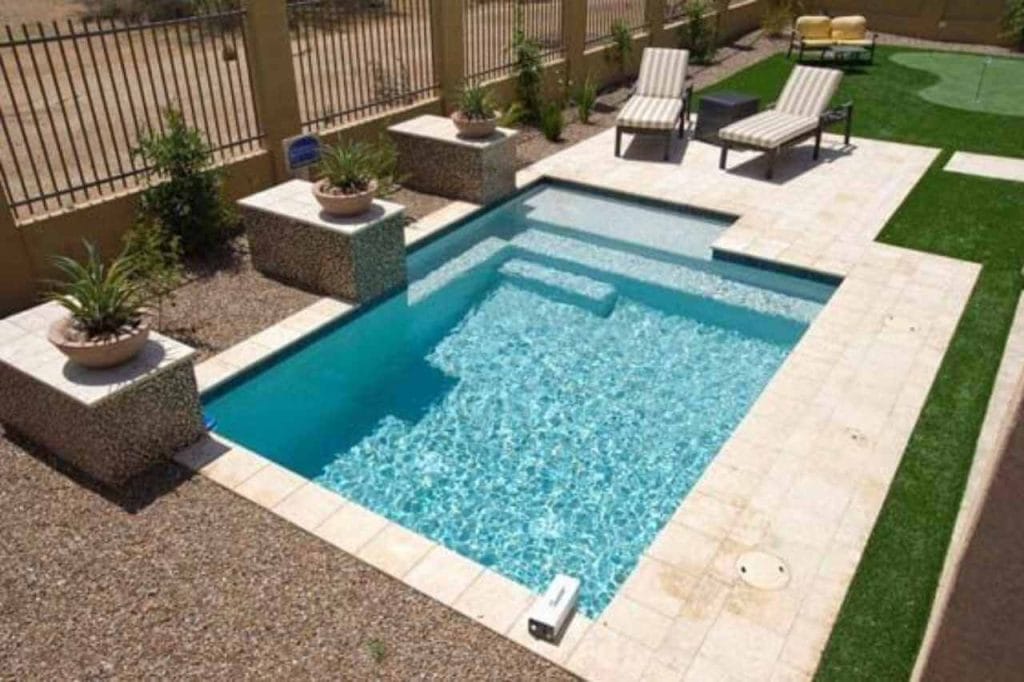
Maintenance of fibreglass plunge pool
Fibreglass pools have the lowest maintenance costs, and they’re easy to maintain approximately $3,750 over 10 years). They’re made from solid, non-porous materials and have smooth surfaces that prevent algae growth. They also don’t need replastering, acid washing or steel brush scraping.
So, are plunge pools worth the effort?
Absolutely — plunge pools are well worth it, especially when it comes to maintenance. Compared to regular-sized swimming pools, they’re far easier to care for and take up much less of your time.
Skimming leaves or giving the pool a quick vacuum can be done in minutes — not hours. In fact, most plunge pool owners don’t even need expensive automatic cleaners. A simple manual cleaning kit is often all it takes to keep things sparkling clean.
At Plunge Pools Brisbane, we specialise in creating custom, low-maintenance plunge pools designed to suit your lifestyle and space. Ready to bring your dream pool to life? Reach out to our friendly team today — we’re here to help every step of the way.
Frequently Asked Questions (FAQ)
Is a plunge pool like a hot tub?
Yes, a plunge pool can act as a hot tub. With the proper heating system, plunge pools can be heated for use during cold weather.
Traditionally, plunge pools are small pools that have cold water. They are also referred to as “dipping pools”. In recent years, the popularity of plunge pools has grown tremendously.
They’re smaller than traditional swimming pools and are usually classified as being somewhere between a spa and a pool in terms of size. They get their name from the fact that they’re mostly used for taking quick plunges to escape the heat – which is perfect for a lot of families!
Can plunge pools be salt water?
Fibreglass is a durable and long-lasting material that can be used to build a saltwater chlorination system for inground plunge pools. This type of pool is just as easy to maintain as a standard inground pool, making it a great choice for those who want the convenience of salt water chlorination without any extra hassle.
However, you’ll want to avoid using a saltwater chlorination system if you choose concrete plunge pools. Salt is corrosive and can damage the concrete over time. Concrete pools need to be resurfaced as is and exposure to salt will undoubtedly lead to more frequent resurfacing and possibly severe damage to the concrete.
Do plunge pools have pumps?
Yes, plunge pools have pumps. Did you know that a plunge pool uses 80% less water than a traditional swimming pool?
Not only does it require less water, but it also uses less energy due to the smaller, more compact pumps that are used. These variable-speed pumps use up to 80% less energy than the standard-size pumps found in larger pools.
Can you put a plunge pool inground?
Yes, you can put a plunge pool inground. Installing a plunge pool is a lot like installing a regular-sized swimming pool – it all comes down to how you want your pool installed.
Inground plunge pools are most likely the most popular type because they give off a more professional look since they’re built into the ground of your backyard.

